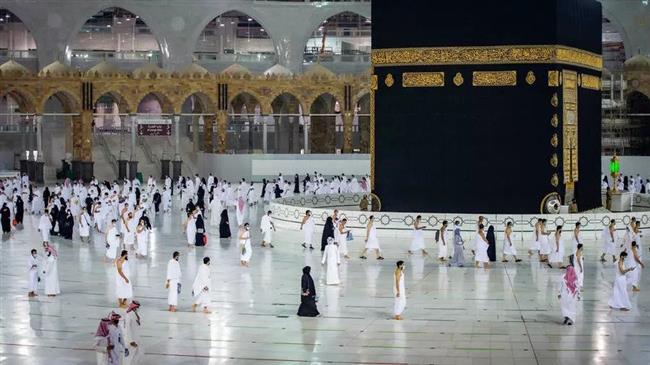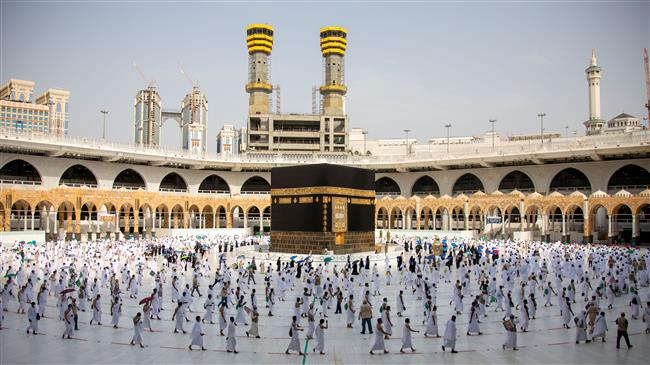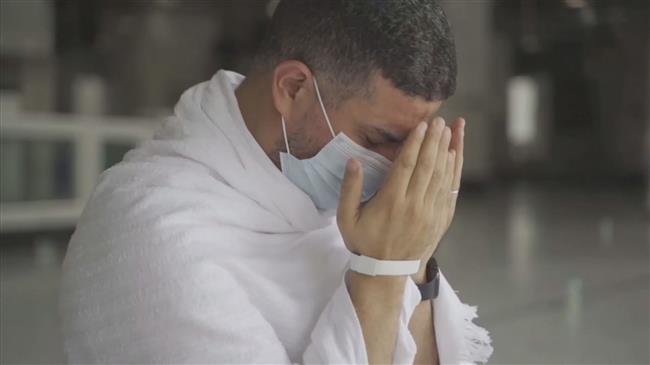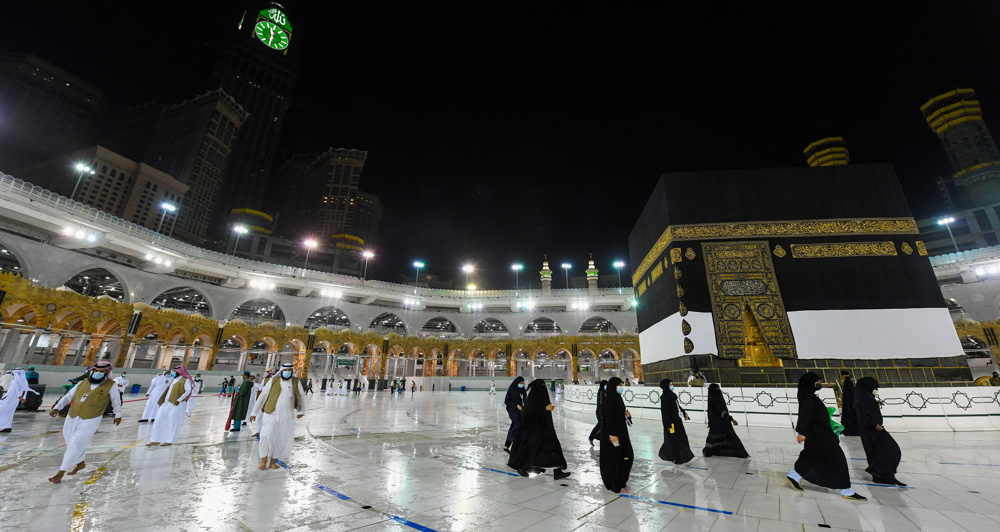Saudi Arabia bars foreign Muslims from Hajj for 2nd years
Saudi Arabia has for a second consecutive year barred foreign Muslims from annual Hajj rituals due to the coronavirus pandemic.
The Saudi Hajj Ministry announced on Saturday that this year’s ceremony, scheduled to be held in July, would only be "open for nationals and residents of the kingdom, limited to 60,000 pilgrims.”
The ministry also said the pilgrimage would be restricted to those individuals who have been vaccinated and are aged between 18 and 65 with no chronic illnesses.
"In light of what the whole world is witnessing with the coronavirus pandemic... and the emergence of new variants, the relevant authorities have continued to monitor the global health situation," the ministry underlined.
"Considering the large crowds that perform Hajj, spending long periods of time in multiple and specific places... requires the highest levels of health precautions."
The five-day Hajj pilgrimage normally brings together nearly two million Muslims from across the world in Saudi Arabia, but only 1,000 pilgrims were allowed last year to take part amid tight coronavirus restrictions.
Last October, Saudi authorities relaxed some of the curbs, opening the Grand Mosque in the holy city of Mecca for prayers after seven months and partially resuming the year-round Umrah pilgrimage, though at a limited scale.
The limit on Umrah pilgrims is 20,000 a day, with a total of 60,000 worshipers allowed to perform daily prayers at the mosque.
Saudi Arabia has so far recorded more than 460,000 coronavirus infections, including 7,537 deaths. More than 15 million coronavirus vaccine doses have been administered in the Arab kingdom of over 34 million people.
A series of deadly disasters over the years, including a 2015 stampede that killed thousands of worshipers, have prompted criticism of the kingdom's management of the pilgrimage.
Jan. 15: ‘Axis of Resistance’ operations against Israeli occupation
VIDEO | US fires: Criticism mounts over govt. failure to respond
VIDEO | Fears, hope in Gaza amid intensified ceasefire efforts
VIDEO | Press TV's news headlines
Hamas: Ceasefire agreement result of steadfastness, resistance in Gaza over 15 months
Hamas thanks Iran, Resistance Front following achievement of ceasefire in Gaza
'Capitulation': Israeli officials and media concede Gaza defeat as truce unfolds
'Gaza has won': Social media users react to ceasefire with mix of relief, joy














 This makes it easy to access the Press TV website
This makes it easy to access the Press TV website